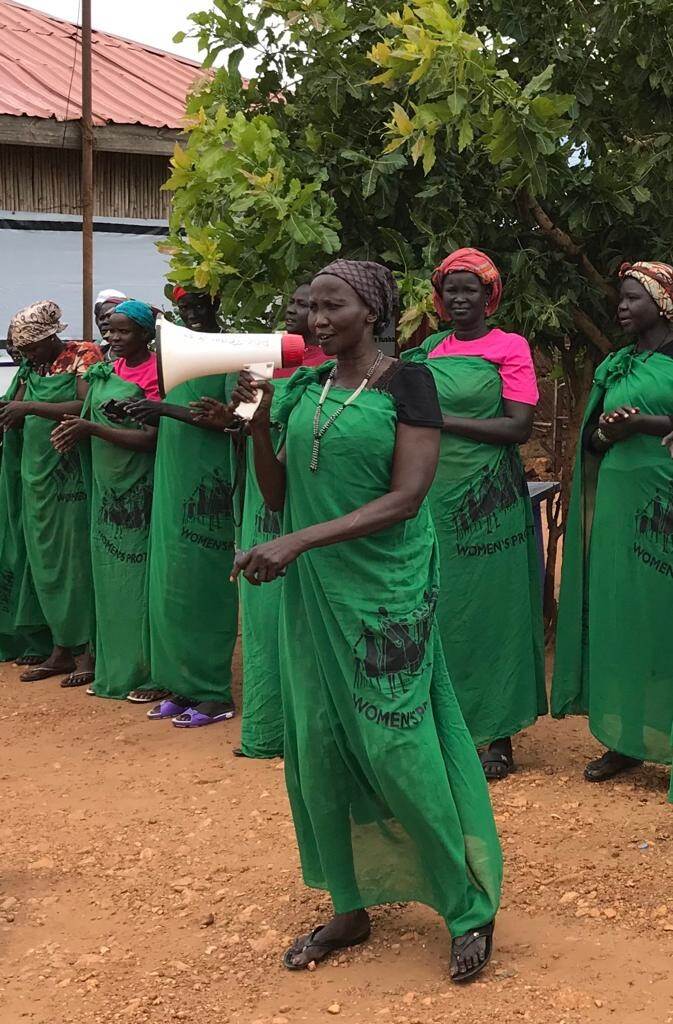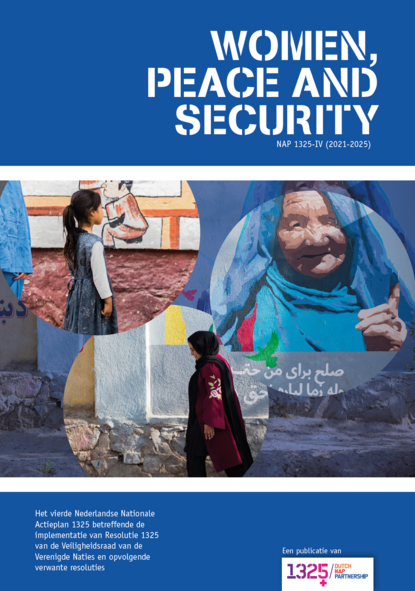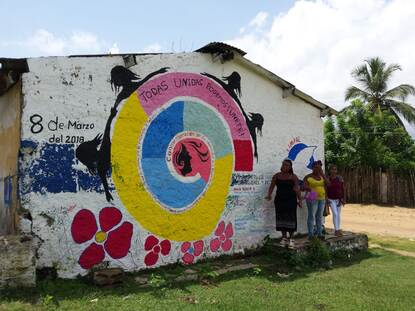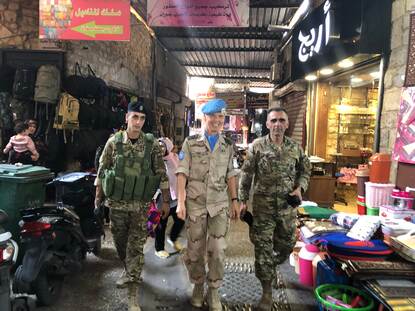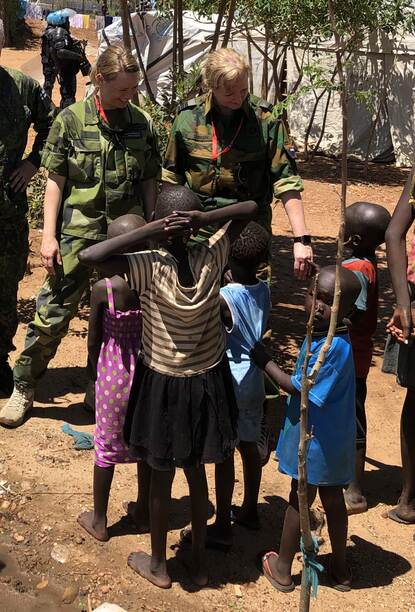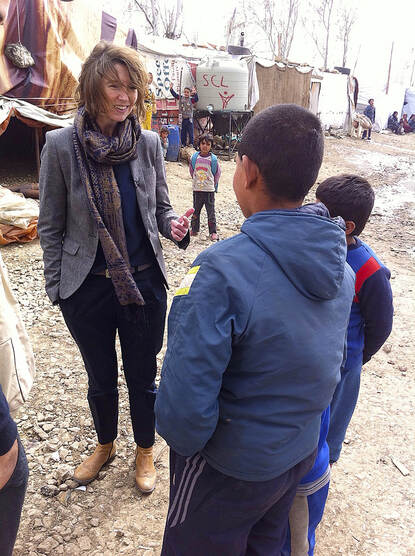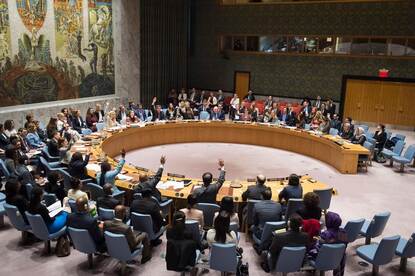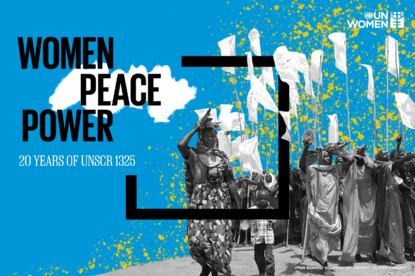Tekst Anneke Zwetsloot / Iris Loonen / Magchiel Dierckx / Roselyn Gama Mikaya
Foto Anneke Zwetsloot / Defensie / Roselyn Gama Mikaya
The implementation of the Women, Peace and Security (WPS) agenda in South Sudan is part of the work of Gender Policy Officer Roselyn Gama Mikaya, at the Netherlands Embassy in Juba in South Sudan and Regional Defense Attaché Lieutenant-Colonel Magchiel Dierckx, at the Netherlands Embassy in Addis Abeba in Ethiopia. In this article, we explore their different roles. We wonder whether WPS is implemented in siloes of ‘soft’ and ‘hard’ security elements, or if these worlds are integrated.
Leestijd: 3 minuten
Can you tell us something about your daily work on WPS?
Lieutenant-Colonel Dierckx:
I’m a policy-officer by day, and a lobbyist by night. My job is to follow military developments in a.o. South Sudan, and in the multilateral context of the African Union (AU) and the Interngovernmental Authority on Development (IGAD). In 2008, Major General Patrick Cammaert said that “it’s now more dangerous to be a women than to be a soldier in modern conflict”. It’s striking how much that still rings true in 2020. We have some great international agreements and policies on WPS, but how do we translate that into concrete action? As the Kingdom of the Netherlands, we have no military operations in the region at the moment. In relation to WPS, my job consists mostly of discussing with likeminded partners on how to better integrate WPS, engaging within different fora such as the AU, and reporting back to the Hague on those discussions
Ms. Gama Mikaya:
My work consists of three main components: gender diplomacy, gender mainstreaming, and gender-specific programming. For example, via engagements and programming with the relevant actors, we push for actual implementation of WPS-commitments that have been laid down in the revitalized peace agreement (2018). This includes advising the ambassador for meetings with for example the Women Parliamentary Caucus, the Ministry of Gender and UNMISS leadership. At a very grassroots level, we support for example women and youth teams in taking up a larger role in peacebuilding. Other programmes we support are geared towards security sector reform, and better integrating a gender perspective into those processes.
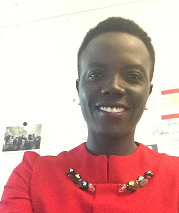
The mandate for the UN peacekeeping mission in South Sudan (UNMISS) is quite elaborate on WPS. Is this how this international commitment is put into practice?
Ms. Gama Mikaya:
We have experienced successes, but we have points of concern, for example when it comes to protection. Recent figures still show high numbers of sexual- and gender-based violence, for example UNFPA reports that in the period of January – September 2020, around 6000 women were raped. This shows that the mandate is still very relevant, and we treat it as a roadmap. A big challenge is the fragmentation of networks of organizations working on WPS-relevant issues. It takes a long time to pull different efforts, different people, together. We see that the content of the mandate is sufficient, but that good political will and resources are necessary to accelerate progress.
Lieutenant-Colonel Dierckx:
There is not one person in South Sudan that will tell you that the speed with which this mandate is carried out is fast. However, even though it’s slow, there is progress. We are moving towards the goals of the mandate, not away from them. For example, we notice that UNMISS is taking a firmer stance towards parties that challenge the proper execution of its mandate. We also see the numbers of women in African armies and in formal spaces (such as the AU’s Peace and Security Council) increasing – the importance of such representation cannot be understated.
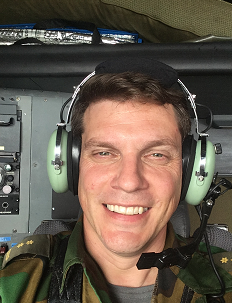
Where do the ‘soft’ & the ‘hard’ components of WPS meet?
Lieutenant-Colonel Dierckx:
With a smile: “Actually, it rubs me up the wrong way to be categorized as part of the hard side of the WPS agenda. The soft and the hard part cannot be distinguished and are both part of the integrated approach, and thus both feed into (defense) policy making. I see it as a continuum, where our expertise comes in at different points. For example: we cannot only protect, we also need to work with potential perpetrators to prevent.
Peace keeping operations in the context of South Sudan are an essential element of implementing protection measures and monitoring the security situation. To do this in the right way, we rely also on input from the communities.”
Ms. Gama Mikaya:
I believe we also should work together in a holistic way and push the mandate, including WPS further. How do we prevent violence from reoccurring? How do we rebuild what has been lost?
As for the Embassy this means also that we should support the protection of civic space, sometimes even literally providing room for civil society organizations to meet to share findings and strategies. It is great to notice that more and more working groups and committees, are indeed opening up to such participation by civil society. Besides being beneficial for lobby and advocacy purposes, their information also contributes to the monitoring of security on the ground.
